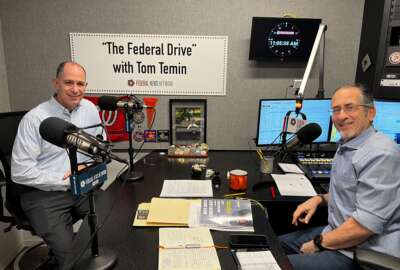Transparency In Government: Not So Much
If there is a government shutdown will you be working or furloughed without pay? What happens to Social Security, and will your tax refund be processed in a timely...
If the government shuts down, will people still be able to contact Social Security with questions and about payments? What happens to your pending refund from the IRS? These are not silly questions.
Transparency in government is a top priority these days. We all know that. The goal is that government should be open and above board. Who could object to that? Except…
If government transparency is so important, such a top priority, how come most people inside government and their fellow taxpayers who depend on it haven’t a clue what will happen, or not happen, if the government shuts down this weekend?
The Office of Personnel Management (and media outlets like Federal News Radio) have done an excellent job with Q & A lists telling federal workers how to cope with a shutdown. Many federal agencies have quietly told key/essential/emergency personnel that they are to report for duty in event of a shutdown. But most members of the public don’t know what services will be available and which will be suspended.
Last week, USA Today reported that the White House has told federal agencies “not to state or imply what functions would or would not be continued in the event of a funding gap.” The newspaper last month sent Freedom of Information (FOI) requests to most federal agencies, asking about their shutdown contingency plans. Few responded and the newspaper said they were told to clear any response with the White House’s Office of Management and Budget.
Is the, uh, lack of transparency because nobody in-the-know really knows what will happen? Or are they trying to prevent panic and confusion? Or create it? Or do they not want us to know? Or is the information on hold while Republicans and Democrats jockey for control while looking for ways to make the other side look like the bad guys? Maybe the suspense and guessing game is designed to spread terror (with a small T) around. Who knows?
A Social Security worker told Federal News Radio “…it is my understanding that the only ‘essential’ people will be the ones processing new claims and existing case workload. Our national Teleservice Center has been told they are ‘non-essential’ and that if there is a shutdown, the first thing to go will be answering the national 800 number. There is also a strong possibility that the local Social Security Offices will not be able to man their phones. This will mean that unless you go in and sit, you will not be able to do business with the agency. Simple things such as changing your direct deposit or address will become a mess. ”
One Social Security employee said there is confusion and “I’m worried because this has become two men standing in a room full of gasoline up to their waists and they are arguing who has the most matches.”
Last Thanksgiving, Social Security staffers got a well-deserved, and unique-to-government, bonus holiday. Commissioner Michael Astrue gave SSA staffers the day off on Friday after Thanksgiving for doing a bang up job handling what he said were unprecedented workloads and unprecedented hostility from some customers. But…
(Last week Federal News Radio asked Social Security’s press office to comment on the shutdown status of its Teleservice Center. We called and they told us to send the press office an e-mail. We did. Twice! Still no response—which, when you think about it says a lot about transparency!)
Shutdown Sunshine
If agencies are keeping quiet about the impact of a shutdown, unions representing federal workers are being very vocal. Colleen M. Kelley, president of the National Treasury Employees Union, and William R. Dougan, president of the National Federation of Federal Employees, held a joint press conference outlining the impact of a shutdown on the public.
American Federation of Government Employees president John Gage has scheduled a press briefing today at the National Press Club to talk about what a shutdown would mean to people inside government and their customers.
To reach me: mcausey@federalnewsradio.com
Nearly Useless Factoid
by Suzanne Kubota
You’ve wondered and now you know: According to LifesLittleMysteries.com, drive-thru ATMs are required to have instructions in Braille as part of the Americans with Disabilities Act.
MORE PAY AND BENEFITS NEWS ON FEDERALNEWSRADIO.COM
Budget buzz grows to a roar
Get ready for a shutdown. That’s what the White House and congressional Republicans are doing too, just in case. President Barack Obama has summoned key players in the budget battle to the White House this morning for talks aimed at averting a government shutdown Friday.
Without LTC, retirement planning is incomplete
If you’ve planned for retirement and haven’t given a second thought to long term care, you’re missing a big chunk of what you may need for retirement. Paul Forte, CEO of Long Term Care Partners, explains why.
Shutdown fudge factor may come into play
Seventy-two hours or bust? If push really comes to shove, The Hill’s Erik Wasson tells Federal News Radio, the House’s 72-hour rule could be waived and even a 24-hour CR is seen as better than a shutdown.
Budget analysis round-up
Hear insights from the Federal News Radio team, including Mike Causey, Tom Temin and Amy Morris.
Copyright © 2025 Federal News Network. All rights reserved. This website is not intended for users located within the European Economic Area.





